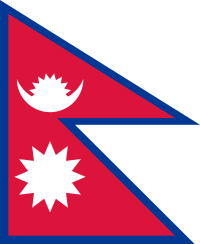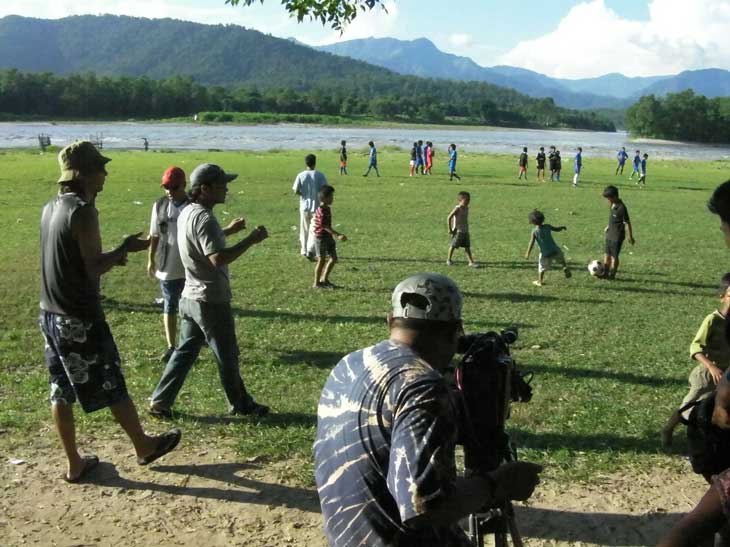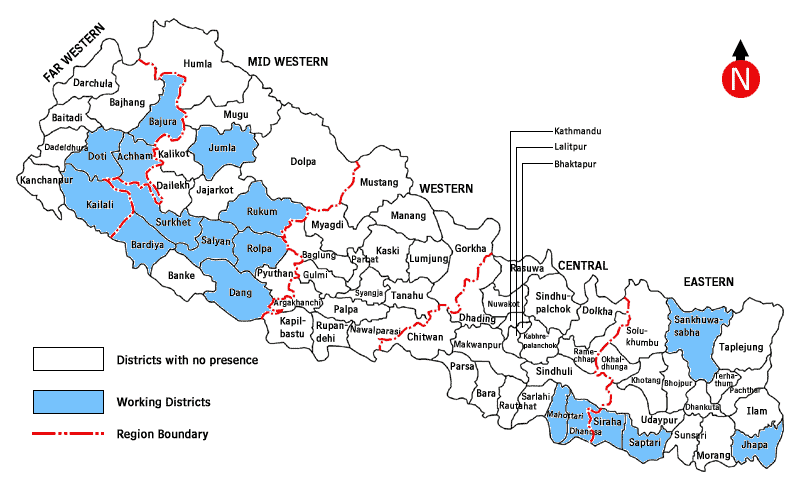|
|
|
Nepal
Our Work
 |
Search for Common Ground established a full peacebuilding program in Nepal in February 2006, during a period of armed conflict and direct rule by King Gyanendra. The years since has seen a dramatic transformation in the country; a democratic revolution led to the restoration of parliament leading to the signing of the Comprehensive Peace Agreement between the Government of Nepal and the Communist Party of Nepal (Maoists) that ended a ten-year civil war war. The implementation of the peace agreement has been fraught with challenges, and over 30 new agitating groups – potential spoilers – have arisen. SFCG has been working throughout the transitional period to provide support for the peace process, particularly with those populations most affected by the conflict. Accompanying Nepal in its historical transition, SFCG has expanded its programs dramatically and broadened its focus from youth to addressing other key stakeholder groups, such as civil society, media, and political organizations.
The overall mandate of SFCG Nepal is to support Nepal’s transition to peace and democracy. SFCG works to bring people together from across ethnic, caste, and political dividing lines – all of which fueled the conflict and threaten the peace – to facilitate their involvement in peacebuilding at the community level. We combine the use of media with targeted community-based work focused on children, youth, radio professionals, and members of civil society. All this has led us to establishing a program that addresses conflict with a range of tools: from the broadcast of a radio-soap opera to the creation of a peace song with ex-combatants, from trainings for members of civil society to a leadership development program with youth leaders in rural areas.
As the peace process continues, we are growing. Initially, the Nepal program started with 2 staff and 1 partner organization; now, SFCG has 35 staff members and a range of partners, including NGOs, radio production organizations, and FM stations. We work in 16 districts and have gone from one source of funding to ten. SFCG works primarily in the Mid-Western, Far-Western, and Eastern regions of Nepal, with a focus on rural communities, however radio broadcasts have gone out nationally to all 75 districts.
Goals & Objectives
GoalsThe mission is to transform the way the world deals with conflict: away from adversarial approaches, toward cooperative solutions.
In Nepal, SFCG has a multi-pronged program to support the peace process, combining media with community peacebuilding work.
SFCG's overall mandate in Nepal is to support the peace process.
Objectives
The strategic objectives of its program are:
-
To increase ownership over and local participation in the transition to peace and democracy;
-
To involve multiple stakeholders, particularly those who have been traditionally marginalized, in democratic processes at local and national levels;
-
To strengthen inter-communal relationships across caste, ethnic, political and geographic lines; and
-
To promote reconciliation to reweave the fabric of society that has been torn apart by war.
Approaches and Strategies
 |
SFCG's program has two major prongs: media and community peacebuilding. Through the production of radio and television programs and the training of media professionals, SFCG can reach across the entire country, including the remote areas. Community Peacebuilding work targets specific key stakeholder groups to bring people together from across dividing lines, create opportunities for people to work together, and get directly involved in building peace. These two pillars of the program are mutually reinforcing with the community work feeding the content of the media programs and the media magnifying the work on the ground. Both program streams are implemented in an integrated manner, using what has come to be known as the "T" approach. The top of the "T" refers to the media programming which reaches across the country and large segment of the population of the country as its audience. SFCG has been producing 21 national and local radio shows reaching millions of people and influencing their knowledge and attitudes. The vertical axis of the "T" refers to targeted community peacebuilding activities through which SFCG is working with 10 local and national NGOs and youth networks, local government officials, and civil society in 16 districts.
This work is targeted at key stakeholders who have potential to have significant influence on the peace process. The work is integrated, linked both at the objective and implementation level.
SFCG's experience throughout the world and in Nepal in using media as a peacebuilding tool has shown that, in order to maximize impact, radio programming should be accompanied by work in communities. This has a multiplier effect as the locally focused work reinforces the messages of the media programs with targeted populations and the radio magnifies the impact of community work by creating a platform for peacebuilders to express themselves.
Target Groups
The primary target groups with whom SFCG and its partners work directly are:
-
The media: Radio producers, radio station managers, young journalists
-
Youth/ youth leaders
-
Partner organizations and Youth networks
The secondary target groups or beneficiaries include:
-
Youth: 15 to 29 years old who are vulnerable to exploitation as well as potential to contribute to the local level peace initiatives and local level youth clubs
-
General public (audience of the radio programs)
-
Journalists and media professionals
-
Local institutions responsible for the peace process: such as local decision makers including political parties, CA members, DDC, VDC and members of local decision making bodies such as CFUG, School Management Committees etc.
-
People from marginalized communities especially women and Dalits
Project Activities and Results
In line with the aforementioned objectives, project activities are structured in 3-different streams and aimed at achieving the objectives vis-à-vis the specific beneficiaries.
Where We Work

Nepal Office
Search for Common Ground Nepal
293/2, Nursery Marg, Lazimpat
GPO Box No. 24905, Kathmandu, Nepal
Tel: +977-1- 4002010, 4002011, 4002012
Fax: +977-1-4437152
|